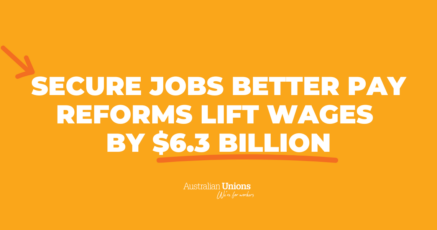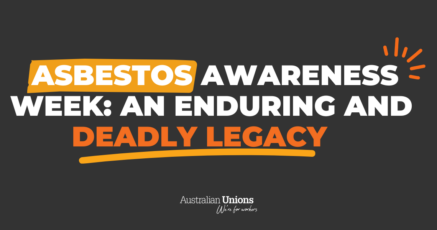By Maddy, an Early Childhood Education and Care worker in Tasmania
As early childhood educators, we are daily expected to observe, interact, and include children with complex physical and developmental needs into experiences and education. Often this is done without additional supports.
Current legislation means that currently two educators are sometimes left with 25 children, including children who should have a one-on-one support educator. In this situation, to be adequately staffed you would need four educators. Unfortunately, our current award sometimes gives us less than 10 minutes per child, per week for personalised programming.
Every day I see colleagues taking their work home, purchasing resources out of their own pockets and exhausting themselves to try to provide quality care in a sector that has forgotten what quality looks like. The starting wage for an Early Childhood Educator is just 47 cents above minimum wage.
If nothing changes, we will continue to see educators leave the sector in droves. Not for lack of love, but because it breaks our hearts to be forced to put profit above children. Tasmania has already lost many fantastic educators to the mainland. With the rising cost of living nationwide, including rental prices and the cost of fuel, being an educator is, heartbreakingly, not financially viable for many people. I work up to 54 hours a week across three different jobs.
In some cases, with different employers across the industry, your hourly rate can be above the minimum Award if you are willing to sign an ‘individual flexibility agreement’.
These arrangements mean rostering can change daily, the omission of off-site rest pauses, and no certainty of when your breaks will be. On some occasions in the past, my start times have changed half an hour before my shift was due to begin. These agreements see workers give up rights in exchange for (slightly) higher rates. In an industry that is so underpaid, is it any wonder employers are getting away with unethical agreements?
The ability to communicate and band together across the sector will give employees strength and safety when it comes to standing up to unethical situations and fighting for better pay. Multi-employer bargaining is a tool that we need to create a stronger, more unified sector that can provide the quality of care that all children deserve, and the pay that educators need.








SHARE:
Strength and safety for childcare workforce